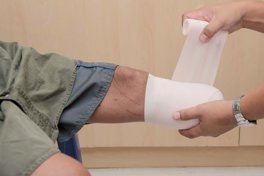As part of Nervember – the yearly campaign from the International Pain Foundation – we are sharing a number of articles, blogs and case studies to highlight nerve pain as a symptom of an injury and nerve conditions which can develop from other injuries.
In this article, we focus on the term Unexplained Pain, which is often given to patients and people who are claiming for pain which does not medically have a known cause.
Chronic Pain History
It is sadly our experience at Simpson Millar that when a client reads the words “unexplained pain” in a medical report or words such as “there is no organic explanation for the symptoms” that they feel they have not been believed – this can be a source of real distress.
There is a wide misunderstanding that if somebody is described as having unexplained pain this is saying that they are fabricating their symptoms.
For people living with pain it can be tough, particularly as pain can be so subjective and they might already be struggling to communicate with their loved ones and their medical practitioners about their pain levels.
It’s important that you have the advice of a personal injury solicitor specialising in chronic pain and psychological injuries if you receive a medical report which notes a finding of unexplained pain.
A reference to unexplained pain can often be an indicator that you might be suffering from a pain condition or from some psychological symptoms which need further investigation and an examination with another medical expert in a different specialty.
A medical expert witness instructed in a personal injury claim can only provide an opinion on your diagnosis that falls within their field of expertise. So, if they cannot explain your pain or symptoms, there could be another explanation.
If a medical expert does suspect that there may be another possible cause or explanation for the symptoms, they will often suggest the type of other additional medical expert opinion you should seek. Sometimes, your Solicitor may need to put further questions to the medical expert to question them further on their opinion and ask if they recommend that an additional opinion on the cause of the pain is obtained, for example, from a Consultant in Pain Medicine and / or a psychologist or psychiatrist to find out if there is another cause for the ongoing pain.
Obtaining a further specialist opinion can make all the difference to access the treatment and rehabilitation package to help ease and manage the pain.









